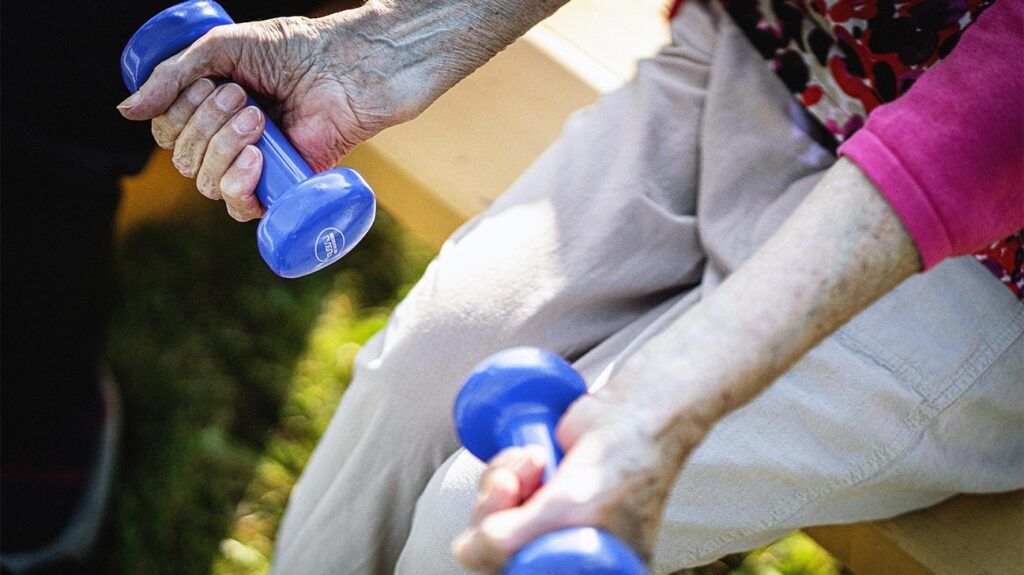Several classes of drugs commonly treat osteoporosis. Generally, determining the safest osteoporosis drug depends on a person’s specific situation, medical history, risk factors, and the severity of their osteoporosis.
Doctors use many different types of medication to treat osteoporosis, depending on a person’s case.
This article looks at the different types of drugs and other treatment options for osteoporosis.

Bisphosphonates are a
Safety
Bisphosphonates are safe and generally cause few side effects. When side effects occur, they are
Possible side effects include flu-like symptoms, such as fever, and gastrointestinal symptoms such as acid reflux.
There is also a risk of hypocalcemia — which refers to low calcium levels in the blood — when taking bisphosphonates. However, people can correct this with supplements, as it is usually not severe.
Some rare side effects include:
- Bone, joint, and muscle pain: This occurs in less than 5% of cases and is usually mild.
- Eye-related issues: These include uveitis, conjunctivitis, and scleritis and occur in less than 1% of cases.
- Atypical femoral fracture: This refers to a fracture in the femur, which is a bone in the leg. An atypical femoral fracture is a rare but serious side effect that can happen with long-term bisphosphonate use.
- Bisphosphonate-related osteonecrosis of the jaw: This is when bone tissue becomes visible in the jaw or lower facial area. It is extremely rare in osteoporosis patients and occurs in less than 0.01% of cases.
It is important to take osteoporosis medication as a healthcare team directs. Typically, this is on an empty stomach first thing in the morning with a full glass of water.
Hormonal medications play a role in treating and managing osteoporosis, especially when the disease has links to hormonal changes or deficiencies, such as postmenopausal osteoporosis.
Safety
Hormonal medications are generally safe, but there may be some precautions and side effects.
Some hormonal medication types and their considerations include:
- Estrogen replacement therapy: This uses estrogen to
maintain bone health andreduce the risk of fractures in postmenopausal people. It comes with some risks, such as increased risk of breast cancer, heart disease, and blood clots. - Selective estrogen receptor modulators (SERM): Raloxifene (Evista) is an example of a SERM. It mimics estrogen’s
beneficial effects on bone density in postmenopausal people without some of the risks relating to estrogen therapy. However, it may increase the risk of blood clots.
Alongside bisphosphonates and hormonal medications, there are other medications doctors can use for treating osteoporosis.
Denosumab
This is a monoclonal antibody that slows bone breakdown. It involves an injection every 6 months and is often for individuals who cannot take bisphosphonates.
It is safe in most people, but doctors should asses a person for low calcium levels, blood clotting problems, anemia, and conditions and treatments affecting the immune system.
Romosozumab (Evenity)
Romosozumab is another monoclonal antibody with particular benefit for postmenopausal people at high risk of fracture.
The most common side effects include joint pain and headache, occurring in
The medication may slightly increase the risk of heart complications and stroke.
Teriparatide (Forteo) and abaloparatide (Tymlos)
These are synthetic
Teriparatide and abaloparatide are safe and generally
Research found these medications may increase the risk of some bone cancers, including osteosarcoma, in rats. However, this risk is likely insignificant in humans.
There are other ways a person can manage osteoporosis:
- Exercise: Weight-bearing and muscle-strengthening exercises
can help maintain bone density and strength. - Diet: A nutritious diet
rich in calcium and vitamin D is important. - Fall prevention: Measures to prevent falls are crucial, such as removing trip hazards in the home and using assistive devices if necessary.
- Treating underlying conditions: Doctors should manage conditions, such as hyperparathyroidism, vitamin D deficiency, and others, that can contribute to osteoporosis.
- Reviewing medications: Some medications
can worsen bone loss, so reviewing and adjusting medication regimens may be necessary. - Acupuncture and yoga: Some people find relief and
improved well-being through alternative therapies such as acupuncture and yoga. However, more studies examining their direct effects on bone density are necessary.
The choice of osteoporosis drugs should derive from consultation with a healthcare professional who can assess the risks and benefits for a specific person.
Certain factors, such as age, sex, risk of fractures, previous osteoporosis treatments, and existing medical conditions, play a crucial role in this decision.
